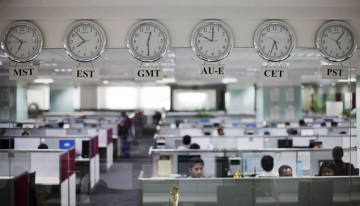 While more than 64 percent of UK enterprises invested in improving digital customer interaction during the pandemic, over half believe their short-term fixes won’t be fit for the long term.
While more than 64 percent of UK enterprises invested in improving digital customer interaction during the pandemic, over half believe their short-term fixes won’t be fit for the long term.
A survey of 100 enterprise IT leaders, commissioned by Macro 4, suggests the pandemic accelerated many organisations’ plans to improve their customer communications technology. But IT chiefs recognise that more work is needed.
Almost all of the sample believed that their organisation needs to improve how it communicates with customers. And 91 percent saw technology as the instrument.
Underlying the main findings, 81 percent of IT leaders agree that the need to react quickly to the pandemic has forced organisations to fast-track technology changes – but 72 percent feel that over the next year they will have to invest in upgrading or replacing some of that technology.







